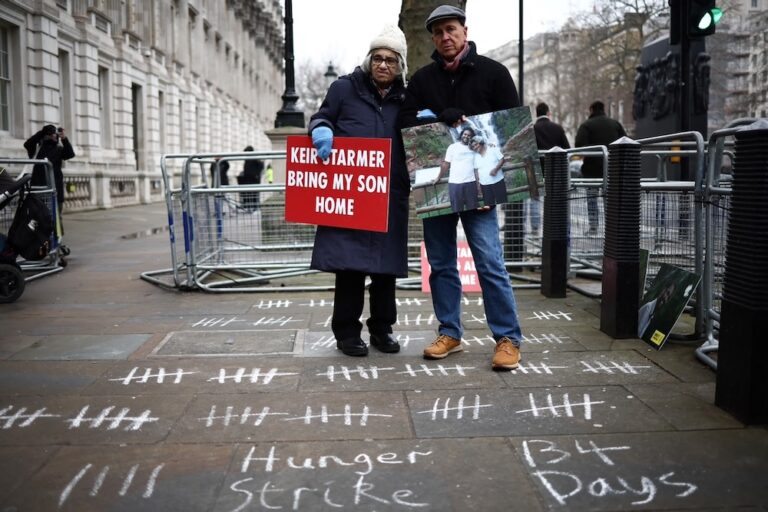(CIHRS/IFEX) – The following are excerpts from a CIHRS statement: Cairo Declaration: Toward a Union for Judges in the Arab World In Defense of Judges’ Freedom of Expression, Freedom of Association and of the Independence of the Judiciary Final Communiqué of the Conference on “The Role of the Judiciary in the Process of Political Reform […]
(CIHRS/IFEX) – The following are excerpts from a CIHRS statement:
Cairo Declaration: Toward a Union for Judges in the Arab World
In Defense of Judges’ Freedom of Expression, Freedom of Association and of the Independence of the Judiciary
Final Communiqué of the Conference on “The Role of the Judiciary in the Process of Political Reform in Egypt and in the Arab World”
Participants in the conference on “The Role of the Judiciary in the Process of Political Reform in Egypt and in the Arab World”, held in Cairo from 1st to 3rd April, 2006, declared that the independence and immunity of the judiciary are not only safeguards for justice and freedom for citizens, but are also a prerequisite for the very freedom of Arab countries. [. . . M]embers of the Egyptian judiciary and judges merit independence from the other two authorities. [They] consider their experience as an example to be followed in the Arab region and countries of the Third World.
[. . .]
Participants have followed with deep concern what could be the beginning of a new crisis, with the decision to interrogate six of the Egyptian Court of Cassation’s Vice-Presidents. Two of the heads of the Court’s circuits have also been notified of warnings relating to the exercise of their constitutional right to freely express their opinions through the mass media and in their professional association, known as The Judges Club. Such government practices bring to mind the 1969 “massacre of the judiciary” [1]. Sadly, these recent measures have been jointly taken by the Ministry of Justice and the Supreme Judicial Council. They were announced in statements and declarations spread through governmental satellite channels, audio-visual and printed media. Participants in the conference consider that the judges’ struggle against depriving legal texts of their content and in favor of their independence is, in fact, a serious endeavor to put into force the fundamental principle of the independence of the judiciary and international human rights standards.
Participants regret:
1. The position of the Egyptian government and the Supreme Judicial Council against judges demanding judicial reform and impartial elections. Participants affirm their solidarity with these judges and call upon all Arab political and civil forces and international organizations to exert efforts to stop the arbitrary measures taken against them. They also condemn any procedure or decision that may deprive judges of their freedom of expression and of their right to express their opinion through mass media and/or through international and national civil society associations, including judicial associations. They also denounce the media campaign, sponsored by the Egyptian government and its loyalists, against the Judges Club and judges and defend their independence and the independence of the judiciary. Such a campaign is considered by the participants to be wrongly organized against judges who are exercising their legitimate right to reach out to the public opinion and to international and national institutions. Besides, it is meant to black out facts away from the international and national public opinion;
[. . .]
4. The position of most Arab governments with regard to lack of respect for the fundamental principle of the independence of the judiciary – especially in judicial cases in which the state is a party – and of freedom of expression, fundamental freedoms and freedom of the press;
5. The position of the Egyptian authorities with regard to the prevention of coverage, by some satellite channels, of the proceedings of this conference. This indicates the desire on the part of the government to impose a blackout in Egypt and in the world on facts and views relating to judges and the independence of the judiciary.
[. . .]
NOTE: [1] In 1969, after a group of reformers and critics of the regime’s authoritarianism won an election for the board of the Judges Club, the direct challenge posed by the vocal judicial leadership proved intolerable to the regime. Nasser responded with a series of measures subsequently referred to as the “massacre of the judiciary,” including the dismissal of over a hundred sitting judges.
To view the statement in its entirety, see: http://www.cihrs.org/Default_en.aspx


